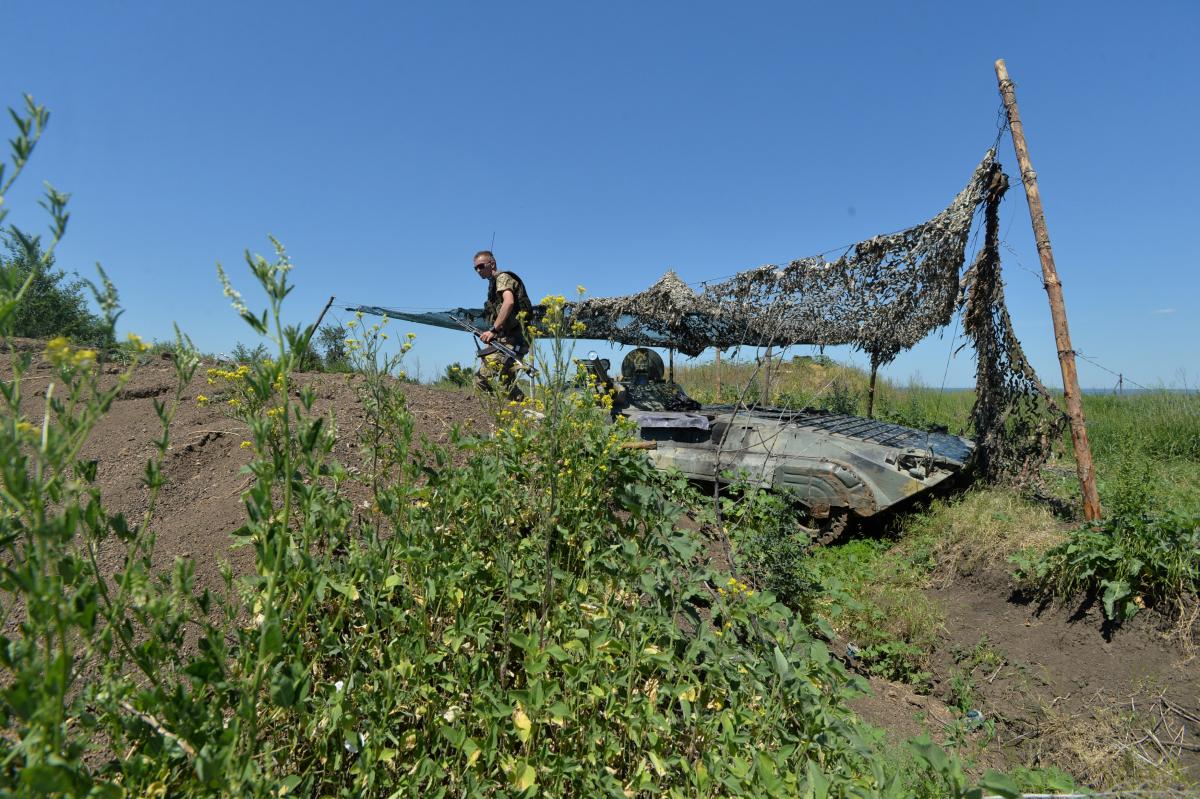
In Europe, a shadow conflict is capturing headlines: The Salisbury poisonings and the unmasking of alleged Russian agents in the Netherlands suggest a return to Cold War-style spy games between Russia and the West.
In Ukraine, the picture is starker. A hot war is continuing in the eastern Donbas region, and the conflict between Moscow and Kyiv appears set to escalate, according to CNN.
The latest flashpoint is Ukraine's bid for greater spiritual independence from Russia.
On Monday, the Russian Orthodox Church broke ties with the Ecumenical Patriarch of Constantinople, the titular head of Orthodox Christianity, after Ukraine secured approval last week to establish an independent Orthodox church.
That move drew immediate condemnation from Russia, which said the decision set the stage for a potential split within the global Orthodox community.
On Friday, Russian President Vladimir Putin presided over a meeting of his Security Council on the matter.
Dmitry Peskov, Putin's spokesperson, said the Kremlin was "extremely concerned," adding: "If the current situation leans into the realm of illegal actions, then, of course, just like Russia protects the interests of Russian speakers, then likewise -- and Putin has said this many times -- Russia will protect the interests of Orthodox Christians."
Such words carry weight. In 2014, Putin justified the Crimea intervention as defending the interests of ethnic Russians. The occupation of Crimea set in motion the war in eastern Ukraine, which has claimed the lives of more than 10,000 people. And Washington is not a bystander in that conflict.
For starters, the U.S. maintains that Russia is the aggressor. Speaking Friday with reporters in Rome, Kurt Volker, the Trump administration's point man on Ukraine, said the separatist forces in eastern Ukraine were "100% under Russia's command and control," despite Moscow's insistence that the war in Donbas is a local uprising.
Read alsoDonbas escalation: 37 enemy shellings, 1 KIA, 3 WIAs
"There shouldn't be any ambiguity about that," Volker said, according to a transcript. "You have military forces that are led by active duty Russian military personnel. Russian officers are embedded through the chain of command down to the company level. Russia pays for contract soldiers to then fill out the whole military force and this goes to a Russian firm -- that then hires the soldiers and provides them to the Donbas. The training, the equipment, the troop rotations, the supplies -- all of this comes directly from Russia."
And Washington has matched strong words with a deepening military partnership with Kyiv.
Last week, the U.S. Air Force kicked off a military exercise in Ukraine, primarily at Ukraine's Starokostiantyniv Air Base. The so-called Clear Sky exercise will include F-15C Eagle fighters, KC-135 aerial refueling tankers and MQ-9 Reaper drones operating from Miroslawiec Air Base in Poland.
Ukraine may not be a NATO member, but the Ukrainian government aspires to NATO membership. Ukrainian President Petro Poroshenko said such exercises would bring Ukraine's military into closer cooperation with the transatlantic alliance.
"The purpose of the exercises is to increase the level of interoperability of our combat aircraft with the air forces of the United States and other member states of the alliance," he said. "Five years ago, our planes rusted on the ground and military pilots forgot about the sky. But today, each of you has an opportunity to see the professional skills of our pilots — soldiers, who carry out difficult tasks on an equal footing with their foreign counterparts."
NATO membership for Ukraine is a red line for Putin, who has said he considers expansion of the alliance a form of aggression. And the US further riled the Kremlin earlier this year, when it delivered Javelin antitank weapons to Ukraine to step up the country's military capability.
The Trump administration's support for Ukraine has undergone something of an evolution, however. Senior officials have consistently stated that the U.S. government does not see Russia's annexation of the peninsula as legitimate, and the U.S. government and its European allies have maintained sanctions on Russia since the annexation of Crimea.
But both before and after taking office, President Donald Trump made statements that appeared to cast doubt on his commitment to Ukraine's claims over the peninsula, both blaming the Obama administration for losing the peninsula and suggesting the people of Crimea would rather be in Russia.
The issue of arming Ukraine has also not been clear-cut. While the Republican presidential platform was being drafted in 2016, Trump campaign officials watered down language about supplying lethal aid to Ukraine. Speculation immediately fell to the possible role of Paul Manafort, then the chairman of the Trump presidential campaign: He had done years of lobbying work for the pro-Russian political party of Ukraine's then-president, Viktor Yanukovych.
Yanukovych fled Ukraine for Russia in February 2014 after street demonstrations toppled his government. Manafort was convicted in August on tax fraud and bank fraud charges, and his legal ordeal is not over.
Against that background, Trump administration officials have been maintaining a harder line on Russia's
In Minsk on Monday, Moscow Patriarch Kirill, the head of the Russian Orthodox Church, convened a synod to respond to the latest developments over Ukraine's move to distance itself from the Russian church.
Ahead of the meeting, Kirill met with Belarusian President Alexander Lukashenko, a close ally of Russia.
"A schism is always bad," Lukashenko said, according to a statement released by the Moscow Patriarchate. "And its consequences are the most dangerous."

